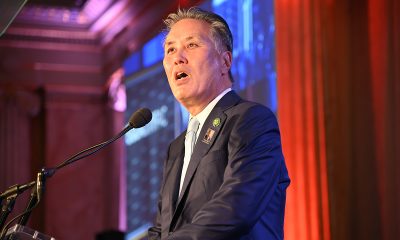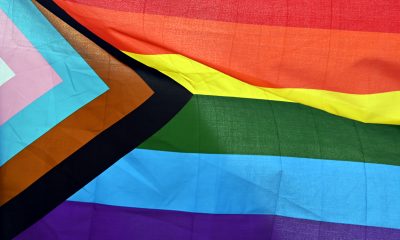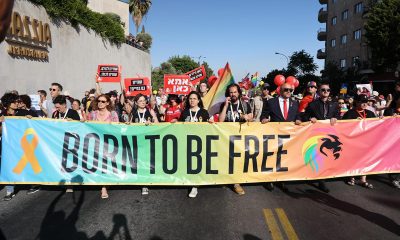Africa
Uganda government forces advocacy group to shutdown
Sexual Minorities Uganda says NGO Bureau ‘halted’ operations
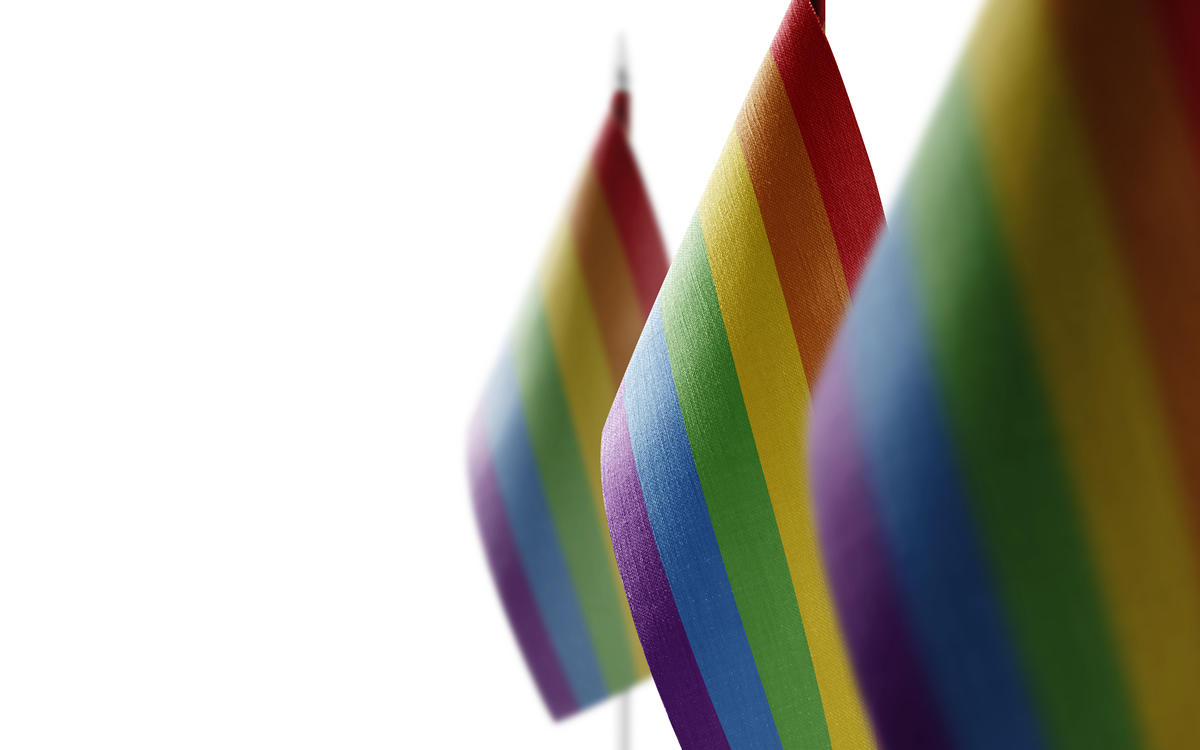
An LGBTQ and intersex rights group in Uganda says the country’s government forced it to shutdown on Wednesday.
Sexual Minorities Uganda in a press release said Uganda’s National Bureau for Non-Governmental Organizations, which oversees NGOs in the country, on Wednesday “halted” its operations “for non-registration with the NGO Bureau.”
The press release notes current Sexual Minorities Uganda Executive Director Frank Mugisha is among those who submitted an application with the Uganda Registration Services Bureau in 2012 “for the reservation of the name of the proposed company,” which was Sexual Minorities Uganda.
David Kato, who was Sexual Minorities Uganda’s advocacy officer, was murdered in his home outside of Kampala, the Ugandan capital, on Jan. 26, 2011. A Ugandan tabloid a few months earlier published Kato’s name and picture as part of an article that called for the execution of LGBTQ and intersex people.
The Uganda Registration Services Bureau on Feb. 16, 2016, rejected Sexual Minorities Uganda’s application based on grounds that it was “undesirable and un-registrable” because it sought “to advocate for the rights and wellbeing of lesbians, gay, bisexual, transgender and queer persons, which persons are engaged in activities labeled criminal acts under Sec. 145 of the Penal Code Act.”
Uganda is among the dozens of countries in which consensual same-sex sexual relations remain criminalized.
President Yoweri Museveni in 2014 signed the Anti-Homosexuality Act, which imposed a life sentence upon anyone found guilty of repeated same-sex sexual acts. The law was known as the “Kill the Gays” bill because it previously contained a death penalty provision.
The U.S. subsequently cut aid to Uganda and imposed a travel ban against officials who carried out human rights abuses. Uganda’s Constitutional Court later struck down the Anti-Homosexuality Act on a technicality.
The Uganda Registration Services Bureau’s decision to reject Sexual Minorities Uganda’s registration application was upheld. Ugandan lawmakers in 2019 passed the Sexual Offenses Bill 2019, which further criminalizes homosexuality in the country.
“The refusal to legalize SMUG’s operations that seek to protect LGBTQ people who continue to face major discrimination in Uganda, actively encouraged by political and religious leaders was a clear indicator that the government of Uganda and its agencies are adamant and treat Ugandan gender and sexual minorities as second-class citizens,” said Sexual Minorities Uganda in their press release. “These further compromises efforts to demand for better health services and escalates the already volatile environment for the LGBTQ community.”
Mugisha described the decision as “a clear witch-hunt rooted in systematic homophobia that is fueled by anti-gay and anti-gender movements that have infiltrated public offices aiming to influence legislation to erase the LGBTQ community.”
Robert F. Kennedy Human Rights, which honored Mugisha in 2011, on Friday said it is “outraged by the utterly discriminatory and arbitrary decision of the NGO Bureau in Uganda to shutdown SMUG operations.”
“This endangers the lives and rights of LGBTQ+ (people) in Uganda and shows the extent homophobia has permeated Ugandan authorities,” said Robert F. Kennedy Human Rights in a tweet.
⚠️ We are outraged by the utterly discriminatory and arbitrary decision of the NGO Bureau in #Uganda to shutdown @SMUG2004 operations.
This endangers the lives and rights of LGBTQ+ in Uganda and shows the extent #homophobia has permeated Ugandan authorities. https://t.co/TT2ruLUrUI
— Robert F. Kennedy Human Rights (@RFKHumanRights) August 5, 2022
The Council for Global Equality, OutRight Action International and Pan Africa ILGA are among the other organizations that sharply criticized the Ugandan government.
“Very disturbing news out of Uganda,” tweeted Pan Africa ILGA. “SMUG, one of the most influential LGBTIQ+ focused networks based in Uganda, has been suspended.”
Very disturbing news out of Uganda. @SMUG2004 one of the most influential LGBTIQ+ focused networks based in #Uganda has been suspended. #StillWeShallRise https://t.co/LeZJ04hIJZ
— Pan Africa ILGA (@PanAfricaILGA) August 5, 2022
U.S. Mission Uganda on Saturday tweeted a link to President Joe Biden’s 2021 memorandum that committed the U.S. to promote LGBTQ and intersex rights abroad as part of American foreign policy.
“We reiterate our support for those committed to ensuring all people are treated with respect and dignity and able to live without fear no matter who they are or whom they love,” tweeted U.S. Mission Uganda.
We reiterate our support for those committed to ensuring all people are treated w/respect & dignity & able to live without fear no matter who they are or whom they love. See link for 🇺🇸 goals to protect human rights & end discrimination of LGBTQI+🏳️🏳️🌈 https://t.co/JJbmwcfcNY
— U.S. Mission Uganda (@usmissionuganda) August 6, 2022
Sexual Minorities Uganda, for its part, remained defiant.
“We shall be back,” it tweeted.
We shall be back. #stillweshallrise pic.twitter.com/gpGMbeJyWv
— Sexual Minorities Uganda | SMUG (@SMUG2004) August 5, 2022
Africa
Lesbian South African MP named to country’s new Cabinet
Steve Letsike won a seat in the National Assembly on May 29
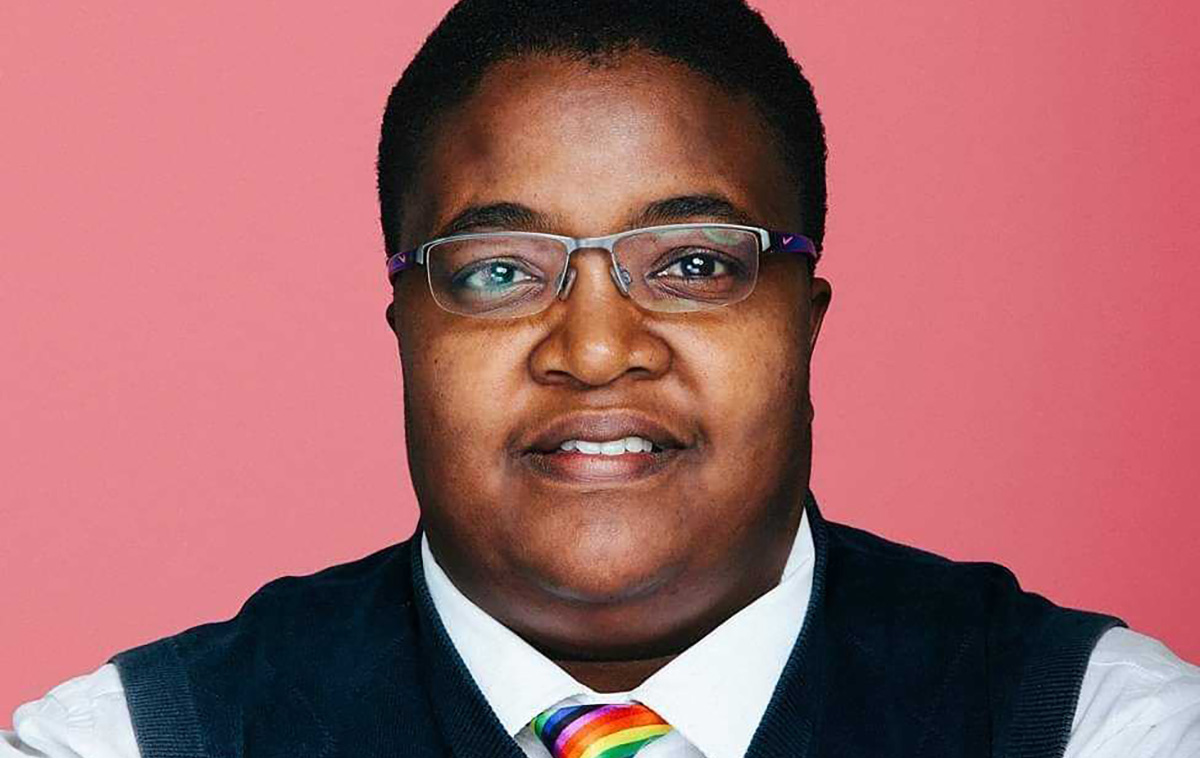
South African President Cyril Ramaphosa on Sunday appointed lesbian MP Steve Letsike to his Cabinet.
Letsike, founder of Access Chapter 2, a South African advocacy group who is a member of the African National Congress that Ramaphosa leads, will be the country’s deputy minister of women, youth, and people with disabilities.
Letsike won a seat in the South African National Assembly in national and provincial elections that took place on May 29.
The ANC lost its parliamentary majority that it had had since Nelson Mandela in 1994 won the South African presidency in the country’s first post-apartheid elections. Ramaphosa on Sunday announced Letsike and other new Cabinet members after the ANC and nine other parties agreed to form a National Unity Government.
The Washington Blade has reached out to Letsike for comment.
Africa
Congolese justice minister orders prosecutor general to arrest LGBTQ allies
Constant Mutamba issued directive on June 15, implementation unclear
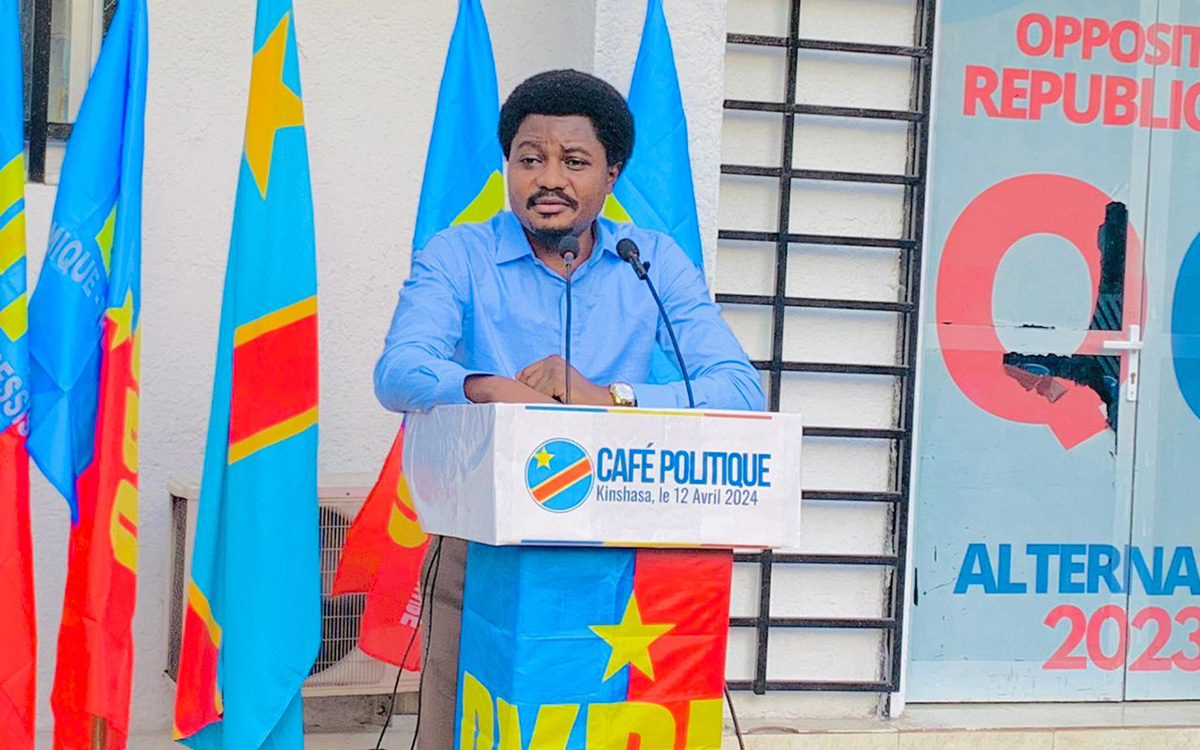
Congolese Justice Minister Constant Mutamba has instructed his country’s prosecutor general to arrest LGBTQ allies.
The newly appointed justice minister in a June 15 communique said the prosecutor general should initiate legal proceedings against people who advocate for the LGBTQ community in Congo.
Although same-sex marriages are constitutionally prohibited, there is currently no law that criminalizes consensual same-sex sexual relations. The communique has raised a lot of eyebrows from social and LGBTQ activists who are asking on what grounds Mutamba issued the communique.
“He could have started by initiating a bill in this direction, but in the current Congolese legislation he is missing the point,” said Jean Claude Katende, a Congolese human rights activist who is the president of the African Association of Human Rights. “If he wants to repress homosexuals, he must initiate a law which must make this behavior an offense and have it punished. He will be arrested for complicity in arbitrary arrests. The constitution is clear, no one can be prosecuted for an act which does not constitute an offense.”
Khelver Hermano, a Congolese social commentator, said the law should not be interpreted based on one person’s emotions.
“LGBT marriage is already not applied in the DRC but the minister wants to incarcerate those who do it informally without a legal basis,” said Hermano. “The law is not interpreted according to our will.”
“Does the penal code in the DRC recognize polygamy? Why don’t we arrest all these known polygamists?” asked Hermano. “Just as polygamists are not prosecuted, we cannot do so against LGBT people.”
Many Congolese people, however, have welcomed the communique, arguing same-sex relations are un-African and unorthodox.
Article 172 of the country’s penal code states a person “who commits a moral crime by exciting, facilitating or promoting to satisfy the passions of others, debauchery or the corruption of persons of either sex under or apparently under the age of 21 years shall be punishable by a prison term of three months to five years or a fine.” Article 176 says a person “who engages in activities against public decency shall be punishable by a prison term of eight days to three years and/or a fine.”
Although not entirely applicable, the prosecutor general can use these two penal code articles to initiate the arrests — the country in recent years has seen some arrests of LGBTQ people.
The June 15 communique is not the first time Mutamba has come out against the LGBTQ community.
Mutamba earlier this year introduced a bill that would criminalize acts of homosexuality. The proposal received widespread support, particularly on social media where many Congolese people described it as a turning point for the country and for the continent at large.
Although parliament has not formally debated the bill, activists are concerned it will pass without many major objections because most MPs have previously said they do not support the LGBTQ community. It remains unclear how the prosecutor general will executive Mutamba’s communique.
Africa
Prominent South African activist elected to country’s parliament
Steve Letsike founded Access Chapter 2

A prominent South African LGBTQ activist has won a seat in the country’s parliament.
Steve Letsike, a lesbian woman who founded Access Chapter 2, a South African advocacy group, is a member of the African National Congress. She is also part of the ANC’s National Executive Committee that determines the party’s direction.
Letsike won a seat in the South African National Assembly in national and provincial elections that took place on May 29.
The ANC lost its parliamentary majority that it had had since Nelson Mandela in 1994 won the South African presidency in the country’s first post-apartheid elections. MPs earlier this month re-elected President Cyril Ramaphosa after the ANC invited the Democratic Alliance and other parties to form a Government of National Unity.
Letsike in a statement to the Washington Blade described her election as “a milestone for the people of South Africa, and also affirmative of our party’s posture that is inclusive and intention to transformation agenda.”
“I am not in parliament for myself but the people that trusted the ANC to send individuals that will put people first,” said Letsike. “In that cohort that includes the LGBTI people like myself. Rooted in the teaching of a just society, that seeks equality and believes in the rule of law. That demand on developmental agenda from a queer lens and clear priorities of the people is important.”
“I am delighted by this task, trust and hope for our people,” she added.
-

 Canada1 day ago
Canada1 day agoToronto Pride parade cancelled after pro-Palestinian protesters disrupt it
-

 Theater4 days ago
Theater4 days agoStephen Mark Lukas makes sublime turn in ‘Funny Girl’
-

 Baltimore3 days ago
Baltimore3 days agoDespite record crowds, Baltimore Pride’s LGBTQ critics say organizers dropped the ball
-

 Sports4 days ago
Sports4 days agoHaters troll official Olympics Instagram for celebrating gay athlete and boyfriend

